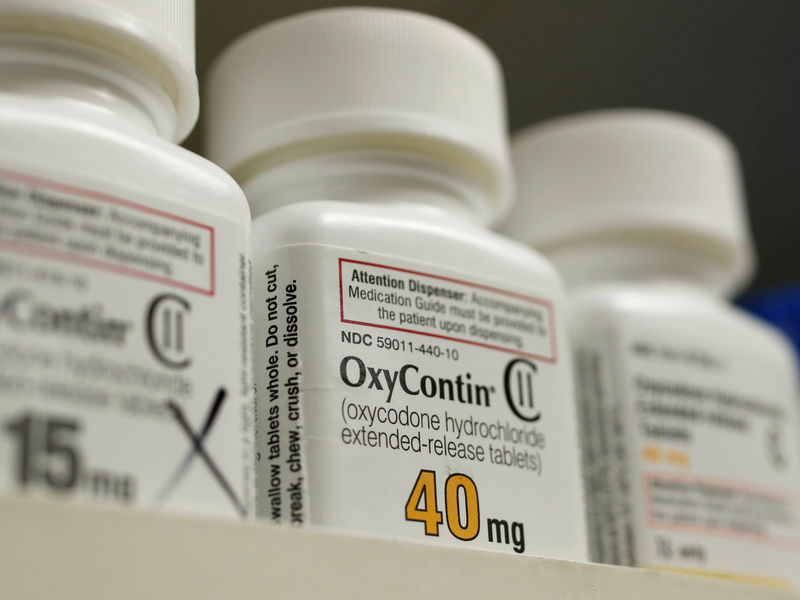By Tom Hals
(Reuters) - A U.S. Bankruptcy Judge signaled support on Friday for a six-month pause to litigation led by 24 states against OxyContin maker Purdue Pharma LP to give the company time to settle thousands of lawsuits alleging it fueled a deadly nationwide opioid crisis.
U.S. Bankruptcy Judge Robert Drain in White Plains, New York, said there was little benefit from numerous states trying to prove at trial the liability of Purdue and its controlling Sacker family for improper marketing of opioids.
"A trial is at best a limited way to get to the truth," said Drain, adding that verdicts often result in debates about the meaning of the outcome.
"There are trials where people stand up and say 'I did it.' But that mostly happens on Perry Mason," he said, referring to the popular TV show from the 1950s and '60s featuring a lawyer who won virtually every case.
Drain was asked to pause for about six months more than 2,600 lawsuits against the privately-held company and controlling Sackler family for their part in the opioid crisis, which has led to some 400,000 deaths from 1999 to 2017, according to U.S. statistics.
The company filed for bankruptcy last month to build support for a proposed settlement that it values at more than $10 billion, and said the pause in litigation will preserve money spent on legal fees.
Most of the lawsuits were brought by local governments, and most back the deal, but at least 24 states oppose it.
Drain said the public deserves an accounting of the company's role in the crisis, but he feared a "trial becomes an autopsy" that destroys the value of Purdue.
He suggested a court-ordered examiner could investigate the company and Sacklers, as was done in the bankruptcies of Enron Corp and Lehman Brothers.
The settlement proposes to transfer Purdue's ownership from the Sacklers to a public trust owned by the plaintiffs. In addition, the family has also pledged to contribute at least $3 billion to the settlement.
Purdue's lawyer Marshall Huebner spelled out an agreement struck on Friday morning between the company, the Sacklers and the official committee of unsecured creditors.
The creditors committee would be charged with vetting the proposed settlement and Purdue would provide millions of pages of documents. The Sacklers would provide an accounting of their wealth and would agree to refrain from taking any material action with their property.
The agreement does not bind the hold-out states, but Drain urged them to join the negotiations.

The hearing was still underway on Friday afternoon.